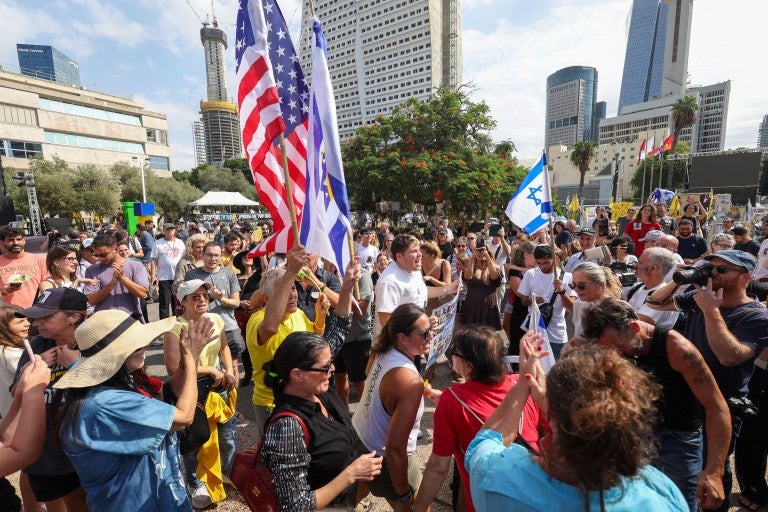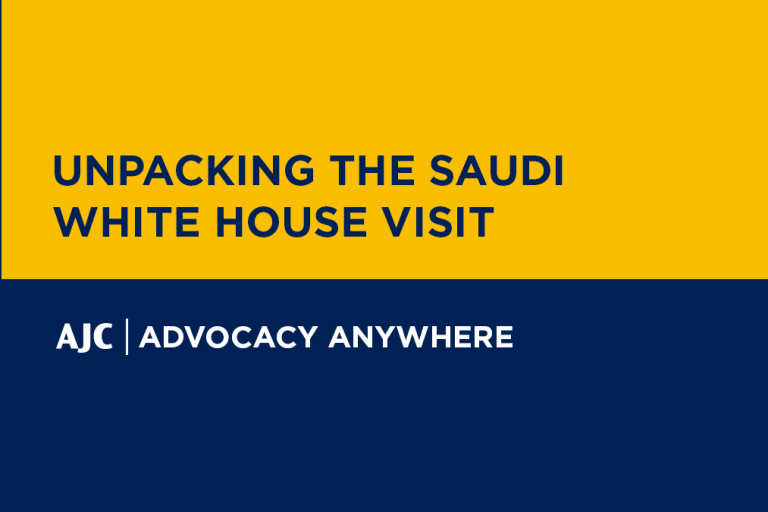April 28, 2017
Last October, UNESCO (the UN Educational, Social, and Cultural Organization), was widely rebuked and ridiculed for passing a one-sided, hypocritical resolution that denied the millennia-old Jewish link to the Temple Mount in Jerusalem, Judaism’s holiest site. Sponsored by seven Arab nations—Algeria, Egypt, Lebanon, Morocco, Oman, Qatar, and Sudan—the resolution failed to garner a majority. This marked a significant setback for those seeking to use the UN to internationalize the Israeli-Palestinian conflict. Before and after the vote, nations reversed their decisions and apologized for supporting the measure. Even UNESCO Director General Irina Bokova criticized the resolution.
A So-Called “Moderate” Draft
Now, the same nations that sponsored last year’s shameful attack on the Jewish link to Jerusalem are back with a new, allegedly “moderate” draft resolution that still undermines the Israeli and Jewish connection to the land. This is yet another blatant attempt to internationalize the conflict and avoid peace negotiations with Israel.
The new draft, slated for a vote at the beginning of May, again condemns Israel’s policies regarding Jerusalem, Gaza, the Cave of the Patriarchs, and Rachel’s Tomb. The sponsors clearly want it to appear more moderate than the October version, but it remains utterly one-sided, advancing a divisive political agenda and seeking to undermine the legitimacy of the State of Israel. For instance, the draft asserts that the Cave of the Patriarchs and Rachel’s Tomb constitute “an integral part” of a presumed Palestinian state. Such a state, of course, does not exist, and Palestinian statehood, together with other core issues relating to the Israeli-Palestinian conflict, can only be resolved through direct negotiations between the parties.
Also, the draft condemns Israel for archaeological excavations in the Old City. How ironic that UNESCO, whose mission is to promote education, would condemn archaeological work designed to shed light on the diverse history of Jerusalem.
But nowhere in the proposed document is Israel’s legitimacy and ethical standing more defamed than in the section dedicated to the violence in Gaza. Instead of placing any blame on Hamas, an organization that deliberately sacrifices the lives of its own population during wartime and considers this a public relations victory, sole blame is placed on the Israelis.
What It Means For Peace
Judaism, Christianity, and Islam are all important to the region’s history. Organizations tasked with defending culture must not wander from their mandate and issue politicized, one-sided statements that favor one people’s history, culture, and ideology over another’s.
UNESCO claims that it wants to “strengthen ties between nations and societies, and mobilize the wider public.” Such an aspiration cannot be reconciled with the issuance of three decisions in less than a year that seek to undermine the Israeli and Jewish historical connection to the region. How can the divisive new draft strengthen cultural ties, foster dialogue and diversity, and serve as a bridge between populations at odds with one another? And, most important, how can it possibly advance Israeli-Palestinian peace? If passed, it will surely further politicize this conflict.


